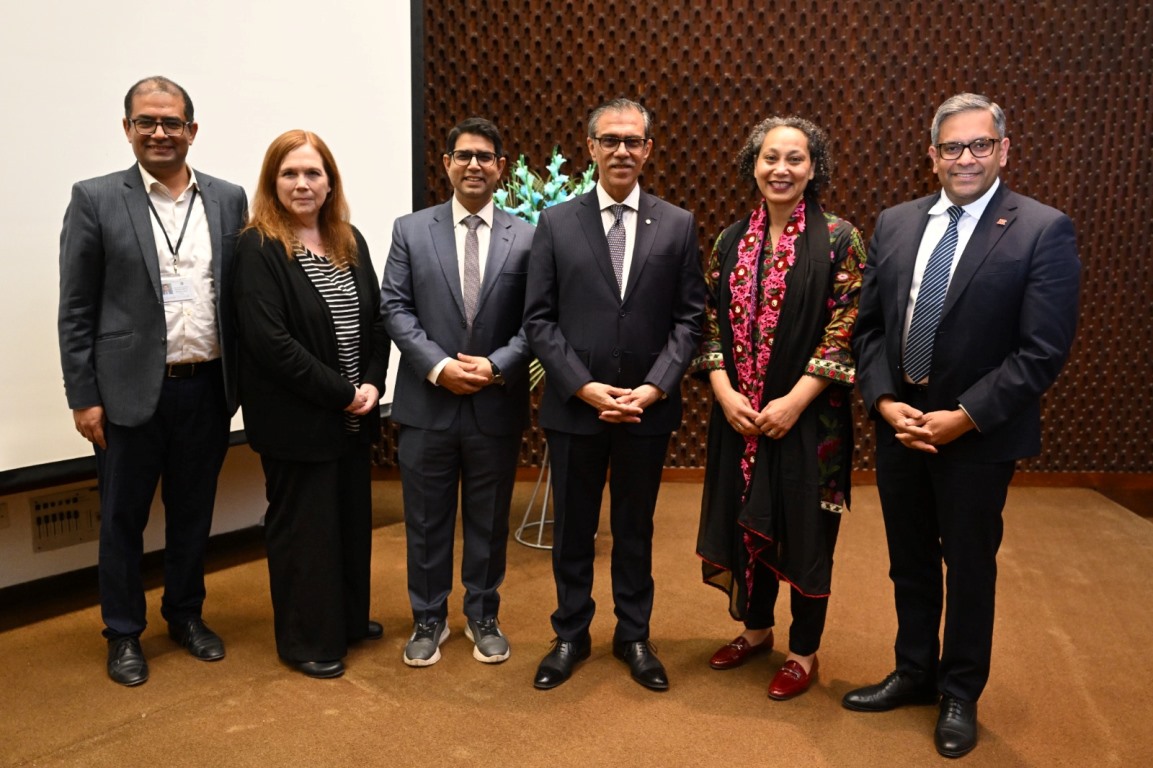Karachi: Experts from around the world gathered at the 26th National Health Sciences Research Symposium (NHSRS) at Aga Khan University (AKU) to discuss the rapidly evolving role of artificial intelligence (AI) in clinical practice. Over two days of keynotes, plenary talks, and pre-symposium workshops, leaders in medicine and technology explored how AI is revolutionizing healthcare delivery, education, and patient care.
Dr. Adil Haider, Dean of AKU’s Medical College, opened the symposium by emphasizing the urgent need to adapt to the technological advancements reshaping healthcare. He noted that AI and machine learning have drastically changed how medical education is delivered, stating, “Rapid advances in AI and machine learning, along with global events like the Covid-19 pandemic, have shifted how we deliver and consume education. Moving to dynamic, student-centered learning is essential for staying relevant in this evolving landscape.”
The integration of AI into healthcare has the potential to improve disease diagnosis, treatment selection, and clinical laboratory testing, consequently improving patient care, and quality of life. Professor Zara Cooper, Professor of Surgery at Harvard Medical School, shared her insights into AI’s potential to improve surgical care, noting that “AI can be harnessed to enhance palliative care, ensuring patients receive compassionate and precise treatment at every stage.”
Professor Mayur Narayan, who leads the trauma department at AiACCESS, stressed the importance of addressing access disparities as AI technology advances in the surgical field. He stated, “AI has the power to revolutionize surgery, but it is crucial that we address the disparities in access and outcomes, ensuring that the benefits of innovation reach every patient.”
Day two of the symposium featured plenary talks from experts such as Dr. Patricia Geli, co-founder and COO of C10 Labs, and Dr. Yasar Ayaz, a professor at NUST and Head of robotics and machine engineering. They explored the role of AI in streamlining healthcare operations, improving surgical techniques, and enhancing patient outcomes. One of the most anticipated sessions was “The Great Debate,” where participants discussed the ethical dilemmas of AI in healthcare and how to balance innovation with moral responsibility.
Additional plenary talks were delivered by Mr. Shahid Azim, co-founder and CEO of Deep Tech Entrepreneur, who spoke on the intersection of technology and healthcare delivery, and Mr. Arhum Ishtiaq, cofounder of Connecthear, who discussed how AI can be used to develop hearing aids that significantly improve the quality of life for people with hearing impairments. His innovative work was recognized with the TRT World Citizen Award 2025.
The 26th NHSRS reinforced the message that AI is not just a futuristic concept – it is the present. It’s transformative power must be understood and harnessed if we wish to progress, create impact and find meaningful solutions. The event highlighted the importance of ongoing dialogue, research, and education in ensuring that AI can be used effectively and responsibly to improve healthcare delivery and access across Pakistan and beyond.

